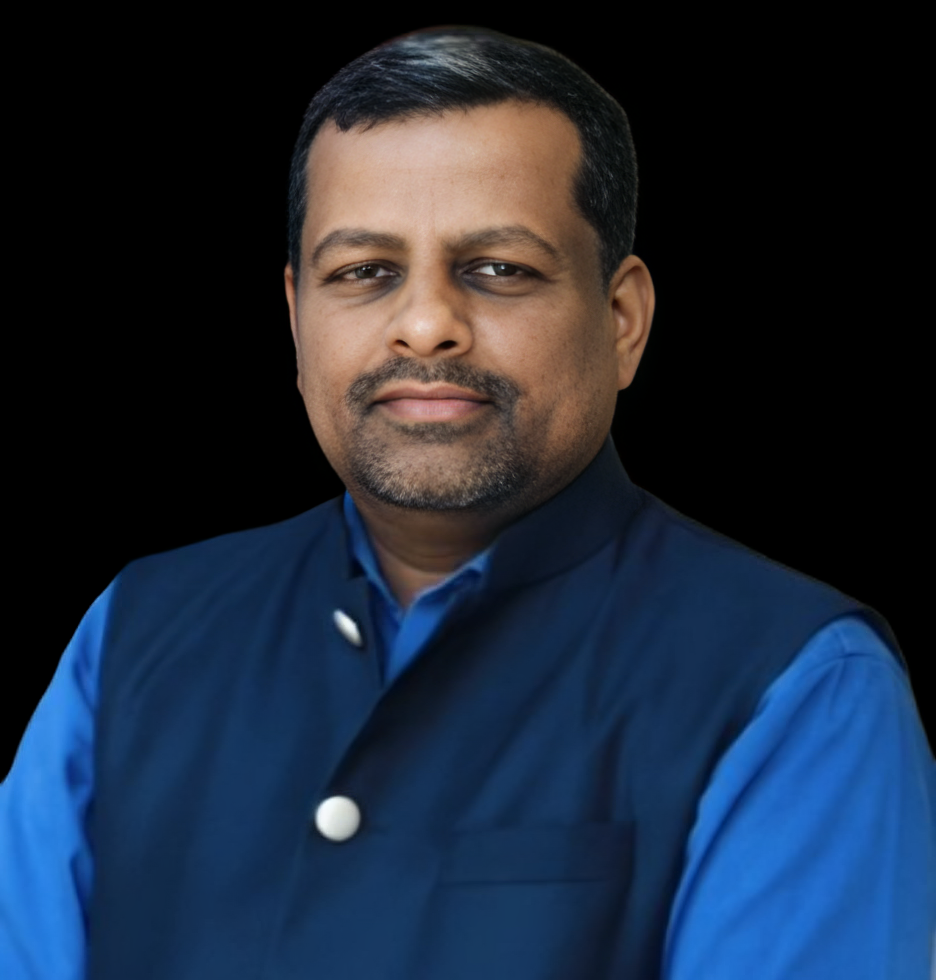Krishna Muniyoor is an Associate Professor in the Department of Economics and Finance at the Birla Institute of Technology and Science, Pilani – Pilani Campus. He obtained his PhD from the Tata Institute of Social Sciences (TISS), Mumbai, where he was awarded the prestigious TISS–LSE Doctoral Fellowship and the ATLMRI (Adecco TISS Labour Market Research Initiative) Fellowship in support of his doctoral research. As part of this fellowship, he was also a Visiting Researcher at the London School of Economics. With over ten years of experience in teaching and research, his academic interests span a diverse range of topics in economics, including Financial Inclusion, Employment, Energy & Technology, Economic Growth, Migration, and Food Consumption. His work reflects a strong commitment to addressing contemporary economic challenges through empirical research and policy-relevant insights.
Social Media Profile
Position held
2011-2012: Visiting Doctoral Fellow, Asia Research Centre, London School of Economics (LSE)
2012-2014: Visiting Faculty, Symbiosis Centre for Management and Human Resource Development, SYMBIOSIS International University, Pune.
2013-2014: Visiting Faculty, Indian Institute of Management, Rohtak
2014-2022: Assistant Professor, Department of Economics and Finance, BITS Pilani, Pilani Campus, Rajasthan.
2022- Since May: Associate Professor, Department of Economics and Finance, BITS Pilani, Pilani Campus (Current position)
Major Publications [Last Five Years]
Khalid Hussain Ansari, Krishna Muniyoor, and Srikanta Routroy (2025) "Determinants of food consumption: the case of pearl millet in India’s dietary transition", Agriculture and Food Security, 14 (30) [Indexed in Scopus & SJR: Q1 and IF: 5.4]
Angana Parashar Sarma,
Krishna Muniyoor & Imlak Shaikh (2025): Nexus between remittance inflows and carbon emissions: evidence from lower-middle-income countries,
Applied Economics, 1-17, Taylor and Francis [Indexed in Scopus & ABDC Rating: A]
Jain, Simran, Padhi, B., & Muniyoor, K. (2025): Tied by Vows, Bound by Norms: The Effect of Marriage on Female Labour Force Participation Rate in India.Ind. J. Labour Econ. 68, 905–936. [Indexed in Scopus & SJR: Q2]
Rani, Suman, Padhi, B., Sahu, P.P., & Krishna Muniyoor (2025). Beyond the Margins: Changing Structure of Female Labour Force and Job Challenges in North-East India. Ind. J. Labour Econ. 68, 1373–1397 (2025). [Indexed in Scopus & SJR: Q2]
Pratibha S., & Muniyoor, K. (2025). India’s Debt Dilemma: Investigating Threshold, Primary Surplus, and Institutional Quality. Journal of Emerging Market Finance, 24(4), 439-460. [Indexed in Scopus]
Paul, B and
Muniyoor, K (2024) "What Determines the Dichotomy between Formal and Informal Employment: Evidence from Maharashtra, India".
Indian Journal of Labour Economics, Volume 67, Pages 483-499 [
Indexed in Scopus & SJR: Q2]
S.Pratibha, Vishal Sharma,
M. Krishna (2024) "Nexus between total natural resource rents and public debt within symmetric and asymmetric framework: Fresh insights from the resource-rich economy",
Resources Policy, Vol. 93, June. [
Indexed in Scopus & SJR: Q1]
Krishna Muniyoor, Aishwarya M, & Angana Parashar Sarma (2024) "Wage Differentials and Inequality in Managerial and Professional Jobs: Quantile Regression Analysis",
Studies in Microeconomics, Vol. ahead-of-print, Issue 0, pp 01-16 [
Indexed in Scopus & SJR: Q3]
Krishna Muniyoor (2022) "Are Unpaid Women Willing to Work in the Labour Market? Evidence from India",
Journal of International Women's Studies, Bilingual Special Issue in English and Spanish: Gender, Social Inclusion, and Entrepreneurship: Women's Struggles in the Private and Public Sector- Meeting Sustainable Development Goal # 5; Vol 23, No 5. Published by Bridgewater State University, MA, USA [
Indexed in Scopus & SJR: Q2]
- Women, Marriage and Labour Market Participation (The Hindu Editorial, October 26, 2023), Jointly with Balakrushna Padhi and Simran Jain.
Women’s labour market participation is often concomitant with enhanced economic prospects and better household decision-making power. From a macroeconomic standpoint, a diminished level of women’s labour force participation rate (LFPR) has significant consequences for women’s intra and inter-household bargaining power, as well as the overall economic progress of the nation.
- Rajasthan farmers benefited from solar water pumps: Study (The Hindu, September 28, 2018) -
A scientific study conducted by Birla Institute of Technology & Science, Pilani, has found a mismatch between investment in solar energy sources and employment generation in the sector, but has stated that the farmers in Rajasthan have immensely benefited from the solar photovoltaic (SPV) water pumping systems. The study has also found a significant decline in the consumption of fuel in the agriculture sector. Scientist Krishna M. led the study as the principal investigator of a project funded by the Indian Council of Social Science Research for addressing some distinct aspects of renewable and non-renewable energy sources at micro and macro levels [Excerpt from the article]. Click here to read more.
- A report on the economic benefits of renewable and non-renewable energy sources (The Indian Express, October 11, 2018)
- India is set to become the youngest country by 2020 (The Hindu, April 18, 2018)
Every third person in an Indian city today is a youth. In about seven years, the median individual in India will be 29 years, very likely a city-dweller, making it the youngest country in the world. India is set to experience a dynamic transformation as the population burden of the past turns into a demographic dividend, but the benefits will be tempered by social and spatial inequalities [Excerpt from the article]. Click here to read more.
Academic Assignments [Reviewer of Journals]
Journal of Cleaner Production
Journal of the Knowledge Economy
Global Business Review
Indian Economic Journal
Journal of Global Operations and Strategic Sourcing
Sustainable Development
Research Projects
2025:









